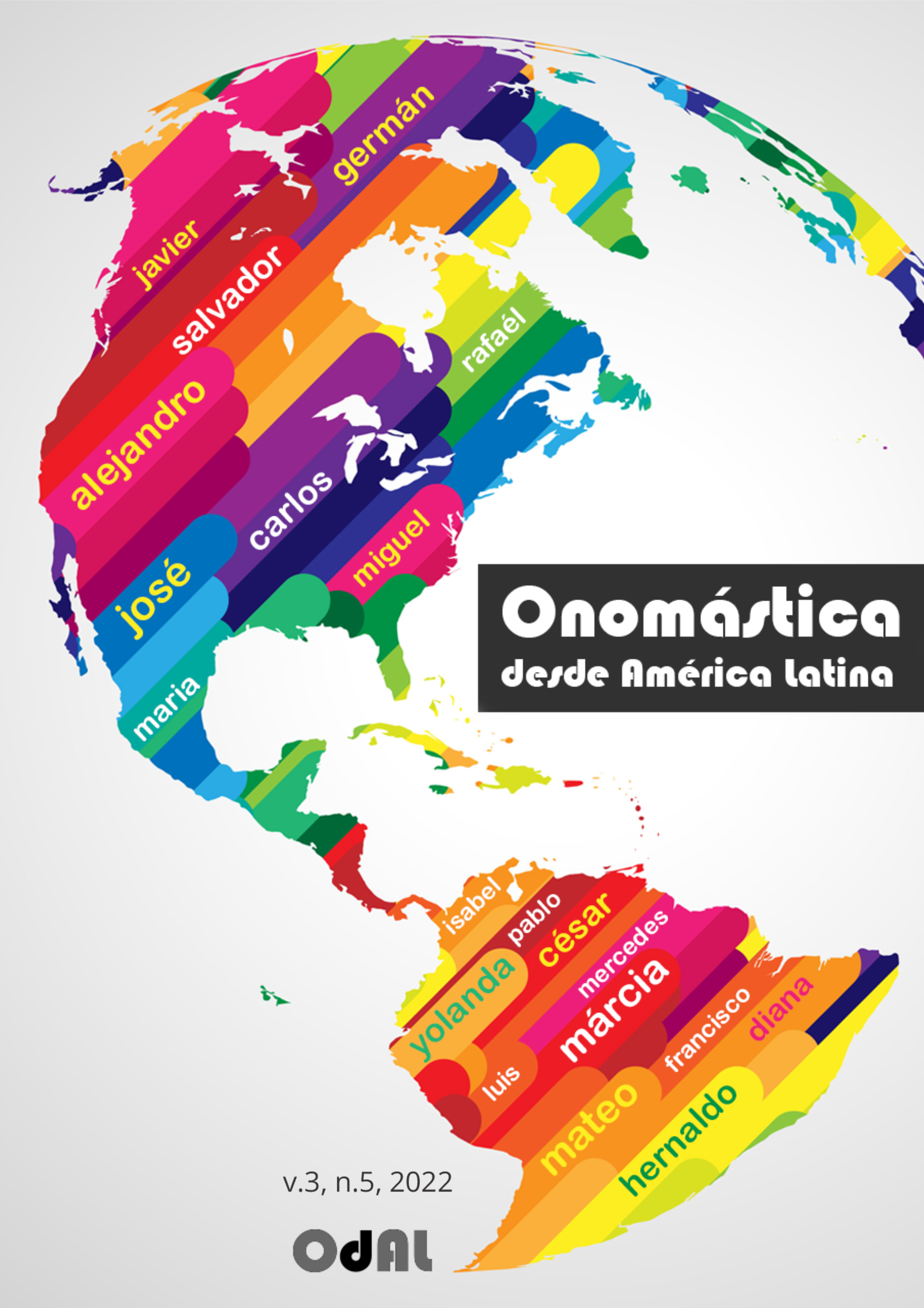The choice of the baptismal name in the 16th century: the case of Jacinto
DOI:
https://doi.org/10.48075/odal.v3i5.28904Keywords:
Antroponimia, Sevilla, Siglo XVI, Libro de bautismo, JacintoAbstract
The paper focuses on Spanish Jacinto (and the female name Jacinta) in the 16th century. For this research, all the baptismal books housed in the parishes of Seville have been studied, particularly the baptismal registers of the Sagrario, the main parish of the city. The study shows that Jacinto, very rare in the 16th century, became frequent in the last five years as a simple name and as an element of double names (e.g. Juan Jacinto). The reason for this extraordinary spreading, in all social classes, seems to be the canonization of Hyacinth of Poland (April 1594). The role of the Sevillian Church must be important in this historic event.
References
Boyd Bowman, P. (1970): “Los nombres de pila en México desde 1540 hasta 1950”. Nueva Revista de Filología Hispánica, XIX, 12-48.
Castro, D. (2014): Antroponimia y sociedad. Una aproximación sociohistórica al nombre de persona como fenómeno cultural. Pamplona: Universidad Pública de Navarra.
Egido, T. (1984): “La religiosidad colectiva de los vallisoletanos”, Valladolid en el siglo XVIII, Valladolid: Ateneo de Valladolid, 157-260.
García Gallarín, C. (2009): “Variación y cambio antroponímicos: los nombres de persona en el período clásico”, Los nombres de persona en la sociedad y en la literatura de las tres culturas. Madrid: Sílex, 71-110.
García Gallarín, C. (2014): Diccionario Histórico de Nombres de América y España. Madrid: Sílex.
García Gallarín, C. (2017): “Antroponimia madrileña del siglo XVII: nombres de pila de los niños abandonados”. En E. Casanova (ed.): Onomàstica Romànica: Antroponímia dels expòsits i etimologia toponímica, especialmente de Valéncia. Valéncia: Denes, 411-25.
Morales Padrón, F. (1982): Los archivos parroquiales de Sevilla. Sevilla: Real Academia Sevillana de Buenas Letras.
Morales Padrón, F. (1989): Historia de Sevilla. La ciudad del Quinientos. Sevilla: Servicio de Publicaciones de la Universidad de Sevilla.
REAL ACADEMIA ESPAÑOLA: Banco de datos (CORDE) [en línea]. Corpus diacrónico del español. <http://www.rae.es> [28/2/2022]
Sánchez Rubio, R. & I. Testón Núñez (2012): “Situación y perspectiva de los estudios de antroponimia en la España Moderna”. En A. Addobbati, R. Bizzocchi & G. Salinero (eds.): L’Italia dei cognomi: l’antroponimia italiana nel quadro mediterraneo. Pisa: University Press, 75-121.
Downloads
Published
How to Cite
Issue
Section
License
Copyright (c) 2021 José Javier Rodríguez Toro

This work is licensed under a Creative Commons Attribution-NonCommercial-ShareAlike 4.0 International License.
Creative Commons Copyright Notice
Open Access Journals Policy
Authors who publish in this journal agree to the following terms:
1. Authors retain the copyright and grant the journal the right of first publication, with the work simultaneously licensed under the Creative Commons Attribution License that allows the sharing of the work with recognition of authorship and initial publication in this journal.
2. Mandatory authorities to assume commitments, for non-exclusive distribution of the version of the work published in this journal (eg, publish in an institutional repository or as a book chapter), with recognition of authorship and initial publication in this journal.
3. Authors are allowed and encouraged to publish and distribute their work online (eg in institutional repositories or on the personal page) at any point before or during the editorial process, as this can generate productive changes as well as increase impact and citation of the published work (See The Effect of Open Access).
Creative Commons License
This work is licensed under a Creative Commons Attribution-NonCommercial-ShareAlike 4.0 International License, which allows sharing, copying, distributing, displaying, reproducing, a whole or parts as long as it has no commercial purpose and is cited by authors and a source.

